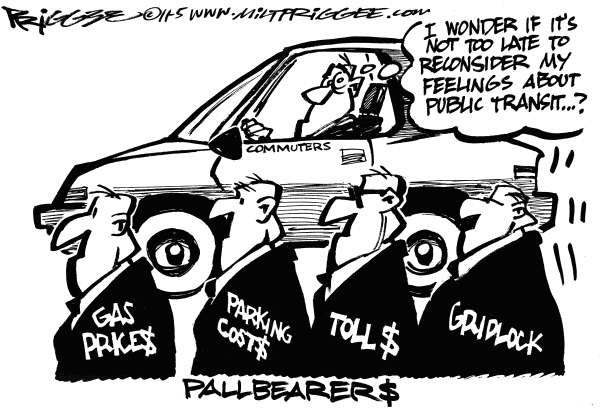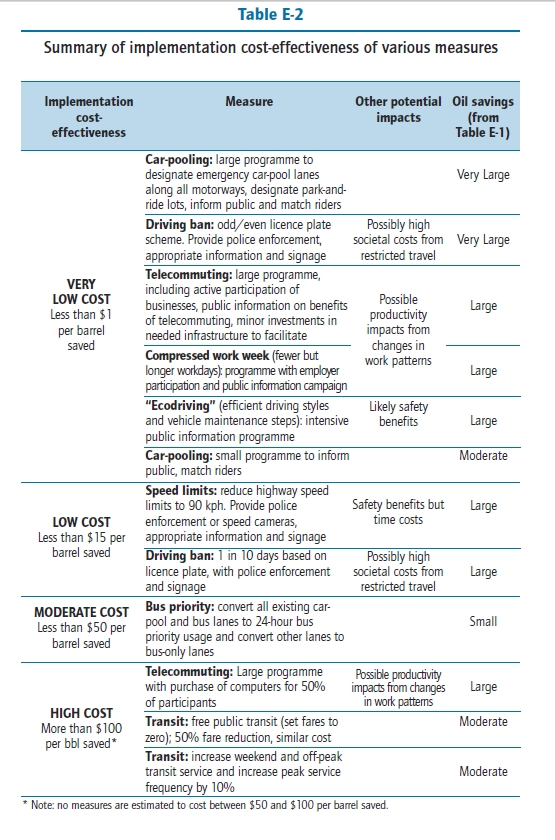Solutions for High Gas Prices
Energy Literacy, Part II

It is common knowledge that there is no quick fix for high gas prices.
Reducing our reliance on oil is going to be a long-term effort and we’re probably in for higher prices no matter what we do because we’re facing a number of macro trends – including tight global supplies (peak oil), ongoing tensions with Iran, etc., and perhaps also some amount of speculation in oil prices.
But is it really true that we can’t do anything to bring down gas prices in the short-term? Maybe not. There are in fact a number of policies that could have a rapid impact on demand and possibly even bring down gas prices dramatically.
One policy, in particular – banning U.S. exports of gasoline – could result in significantly lower prices for gasoline almost overnight. As far as I can tell this policy is not being talked about at all, and it should be.
The United States became a net oil-product exporter in February of 2011 for the first time since 1949. It’s important to stress, however, that “net oil products” refers to refined oil products, not to crude oil itself, which dwarfs net oil products – and, as I wrote about recently, we only produce about six million barrels of crude per day. Meanwhile, we still import about half the liquid fuels we consume, which totals to about 19 million barrels a day (including not only liquid petroleum fuels but biofuels, natural gas liquids, etc.)
While oil prices are subject to global markets, gasoline markets are far more regional. In the United States itself, gas prices range from $3.62 a gallon to over $4.22 in California. Check gasbuddy.com if you’re curious. Regional markets are based on different blending requirements related to air quality and to local storage capacity, local production of oil, and other factors.
In 2011, United States companies exported 479,000 barrels per day of motor gasoline, which is up dramatically from recent years. This is a significant chunk of the 8.7 million barrels per day that the United States consumes in gasoline.
With gas prices at seasonal records this year, and approaching all-time record prices, why are U.S. refiners exporting gasoline and other oil products abroad? Isn’t there a good rationale for keeping these products here in the United States to drive down gas prices?
Don’t our ongoing economic problems justify some limits on U.S. oil-product exports? No one can say with certainty how much prices would drop if the United States banned oil-product exports, but it seems that prices would drop substantially.
Higher gas prices have a major impact on gross domestic product. Recent research from Mingqi Li at the University of Utah found that from 1971 to 2010, every ten dollar increase in oil prices resulted in a 0.4 to 1 percent drop in GDP. I haven’t seen similar research on gas prices, but presumably the same significant increase in GDP would result from a proportionate decrease in gas prices – which could be prompted by a ban on U.S. gasoline exports.
There are many other things that the federal government or state governments could do so bring prices down or to otherwise limit the impact of high prices on our economy.
The International Energy Agency (IEA), the West’s energy watchdog, issued a report in 2005 entitled “Saving Oil in a Hurry.” As the title suggests, it consists of a number of recommendations for reducing oil consumption when time is of the essence – kind of like now. IEA organized the recommendations starting with the highest potential for reductions.

Clearly, emergency carpool lanes and driving bans would require truly dire circumstances to be put into force and I don’t envision those circumstances happening any time soon. (We also have the Strategic Petroleum Reserve for truly dire circumstances, and coordinated international releases are being discussed by the United States, the United Kingdom, and other countries).
The next three categories in the chart above are, however, more feasible as part of state or national efforts to dramatically reduce oil consumption if conditions warrant such measures.
Higher prices and a more efficient economy have resulted in “demand destruction” of two million barrels of oil per day since 2009. This change is remarkable and appears to be a sustained trend. We can see the remarkable impact of conservation and efficiency when we compare, over the past five years in the U.S., the decrease in oil demand on the one hand and the increase in crude oil production on the other. In fact, from 2007 to 2011 we have “produced” more oil from conservation and efficiency than from increased production by a factor of three. Conservation and efficiency have “produced” a total of 1.85 million barrels per day of oil since 2007, compared to 0.57 million barrels per day from new production.
It’s clear that the sky-high oil prices we’re seeing in 2012, when combined with the substantially increased efficiency in vehicle fuel economy and industrial procedures, will result in significant additional declines in U.S. oil demand. We are indeed “drilling” far more oil from increased efficiency and conservation than we can realistically hope to drill from the ground.
Summing up, President Obama and Congress could exert a very significant downward effect on gas prices – quickly – by banning U.S. gasoline exports and keeping that gas here. We could also implement many policies to “save oil in a hurry” – if our leaders are serious about reducing the financial burden that high oil prices have on our economy.



